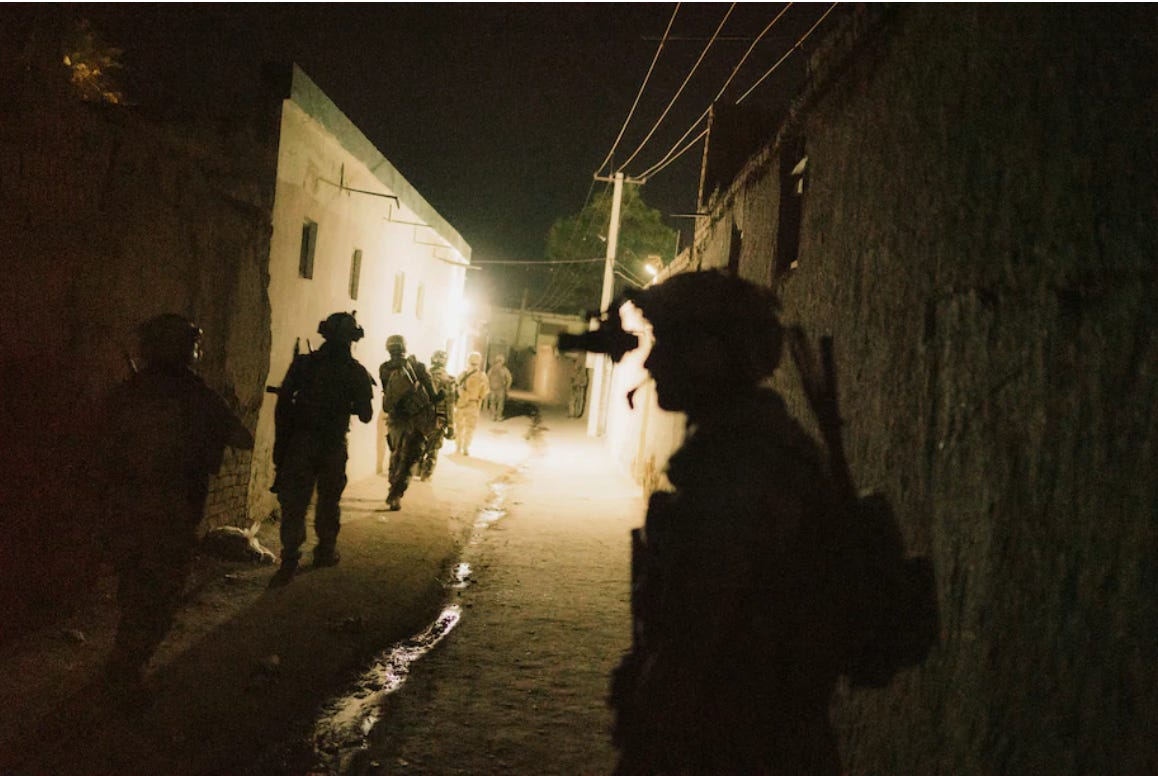A new phase of a never-ending war
As the U.S. completes an exit of sorts, the Afghan war shifts yet again.
Welcome to “What's Up Afghanistan?” by me, Arash Azizzada. Thank you for reading! My goal here is to try to make the news from Afghanistan digestible and understandable. I will try my best to center Afghans and Afghan voices. This edition of the newsletter is free but to keep this little venture going, I am asking folks to subscribe! For the cost of one oat milk latte per month, you will get multiple newsletters a month delivered right in your inbox. Check out previous work here.
This newsletter returns after a bit of a hiatus with bleak and not-much-positive news to deliver. Much has happened in the past few weeks as the U.S. is completing its military exit (albeit drone strikes continue).
Lorenzo Tugnoli/Washington Post
In the past few weeks:
President Biden held a press conference in which he tried to wash his hands of any wrongdoings in Afghanistan, reinforced oriental stereotypes about the country, and furthermore signaled that he has actually very little interest in the well being of 30 million-plus Afghans. Such is the attitude of a nation that has spent 20 years or so pretending to care about human rights, progress, and nation-building.
The Taliban has pushed, quite successfully, for greater control across much of the country as the U.S. is completing its pullout from Afghanistan. Much of this has actually happened with little fighting, with the Taliban relying on tools that have pushed the other side to surrender. The Taliban has—emboldened by the withdrawal and the diplomatic status it has garnered thanks to President Trump’s Doha deal—all the momentum at this juncture. It’s moving strategically to cut off provincial population centers across the country and even gained control of border crossing that is vital to Afghanistan’s economic in- and output. It has also benefited from the lack of grandiose vision from powerbrokers and Ghani’s administration in Kabul, who neither anticipated the Taliban momentum and failed to foresee America’s military withdrawal, something some of us have now been discussing for years. It is clear we are now in yet another new phase of a seemingly never-ending war: the Taliban controlling much of the rural areas where most of the fighting occurs and the government controls the heavily populated cities and provincial centers.
There are so-called peace talks occurring. I will not go much into discussing these because like the ones in the past, it’s an obviously positive step that they are occurring but they are moving forward without much substance, especially as the Taliban moves to further consolidate power through violence alone. “They told our negotiators these aren’t peace talks anymore, they are surrender talks,” according to one media report.
Militia-forming in the wake of the Afghan army sputtering and failing. Many in the diaspora especially, have welcomed this development as many Afghans across the country fear a return to their awful rule. Yet, the militias that are emerging mean another worrying trend in the long term. They are rife with abuse, lead to more warlordism, and are not beholden to any accountability. For now, however, they have one common goal: stop the Taliban.
A refugee and displacement crisis is occurring. Many are already victims—Afghans are dying and being injured—with the conflict intensifying and many others are internally displaced, with many eyeing Kabul as a partial safe haven. There is a lot of chatter regarding some in civil society, especially journalist, human rights workers, and prominent women's rights activists, being targeted or receiving threats from the Taliban. In the diaspora, we are seeing the first wave of a brain drain that is slowly jump starting.
Not much to write home about. But this is the current situation in Afghanistan. Surely to be continued.
Additionally, some of us in the diaspora have launched a new campaign with 4 main goals: facilitation of future refugees, an end to US participation in the conflict, continued push for diplomacy, and sustained aid to Afghan civil society. You can sign and circulate the petition that pushes for this here.
Thank you for reading, as always.




